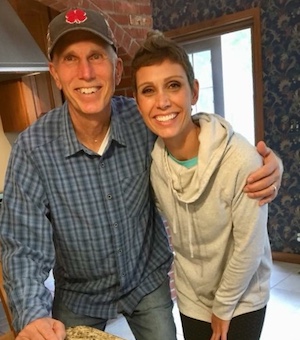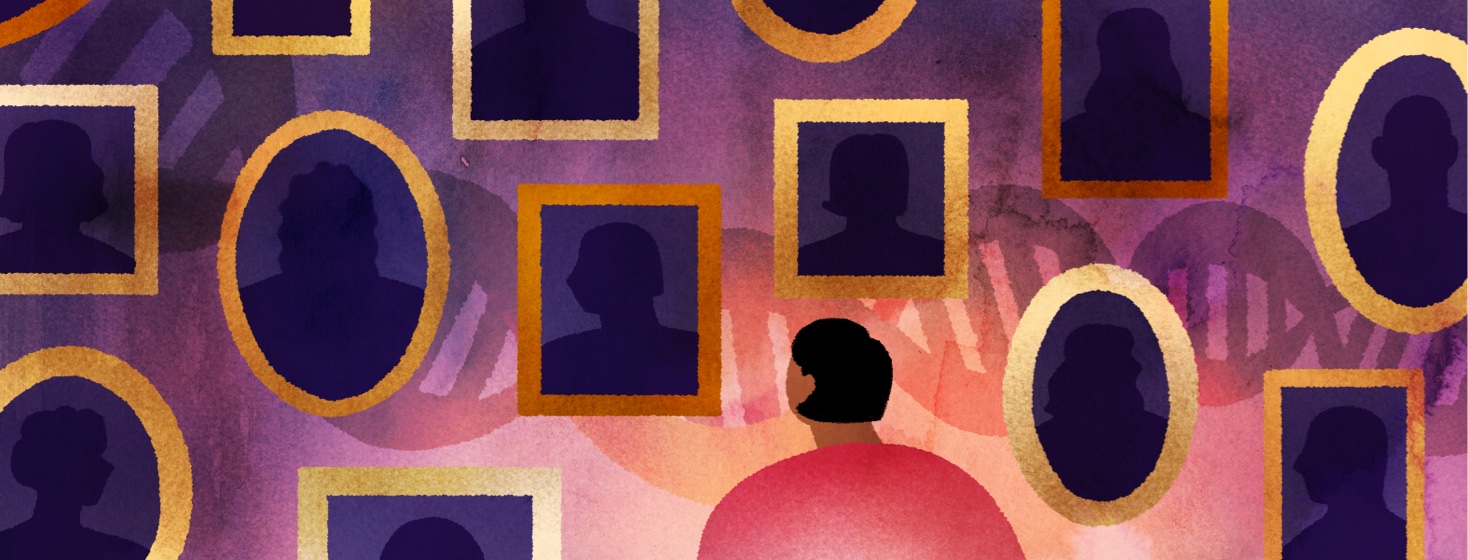Genetic Testing: A Simple, Yet Complex Thing
The biggest question I receive, since I had both endometrial and ovarian cancer at the same time, is whether I have a BRCA gene mutation or Lynch Syndrome. The answer is simple, yet complex...I do not. What I do have is a gene variant of unknown significance, meaning I have a mutation of sorts but at this point in time, they do not know what it does.
So why did I have a prophylactic bilateral mastectomy? Because my dad, his mom, and myself all have the same VUS.
It's important to know your family history
Only 5-10% of cancer diagnoses are from a genetic mutation inherited from a parent.1 Family history is as important, if not more important when it comes to cancer and preventative screenings/procedures. I know, I thought the majority of cancers were caused by a mutation...but they’re not.
 You see after my dad received his prostate diagnosis I waited a little bit and then I looked up prostate cancer and ovarian cancer and found a study that caused me to have a conversation with my oncologist. Since we’d already had my grandmother’s genetic testing done since she’d had breast cancer a few times, we knew we shared the gene...what we didn’t know is if my dad did.
You see after my dad received his prostate diagnosis I waited a little bit and then I looked up prostate cancer and ovarian cancer and found a study that caused me to have a conversation with my oncologist. Since we’d already had my grandmother’s genetic testing done since she’d had breast cancer a few times, we knew we shared the gene...what we didn’t know is if my dad did.
After it was found that he did, we thought it was best that I consulted with a breast cancer surgeon and after doing so made the decision. I just couldn’t have another cancer diagnosis if there was a way around it. It’s what was best for my mindset.
Things to know about genetic testing
I do want you to know a couple of things about genetic testing. It doesn’t hurt, it’s a simple test, but that doesn’t necessarily mean the results will always be easy to digest. Depending upon the results you may need to talk to others in your family or even discuss what preventative measures you yourself need to take. It can be a lot given the reason you’re having the test done in the first place.
Anyone with ovarian cancer should have genetic testing done. If your medical team hasn’t discussed it with you, bring it up so you can have a conversation about it.
Looking to a better tomorrow
So how do I feel about my VUS given I have two children that I may have passed the gene on to, do I blame myself? No, I do not...at this time they have a 50/50 shot that I passed this along to them. By the time it would potentially cause issues science will more than likely have advanced to a place that our options will be far different than they are now.
I can’t help that I have this gene, I also have no control over whether or not I may have passed it along to my children. What I can do though is ensure we’re continuing to have conversations with their medical teams in the years to come to make sure we’re staying ahead of everything.

Join the conversation